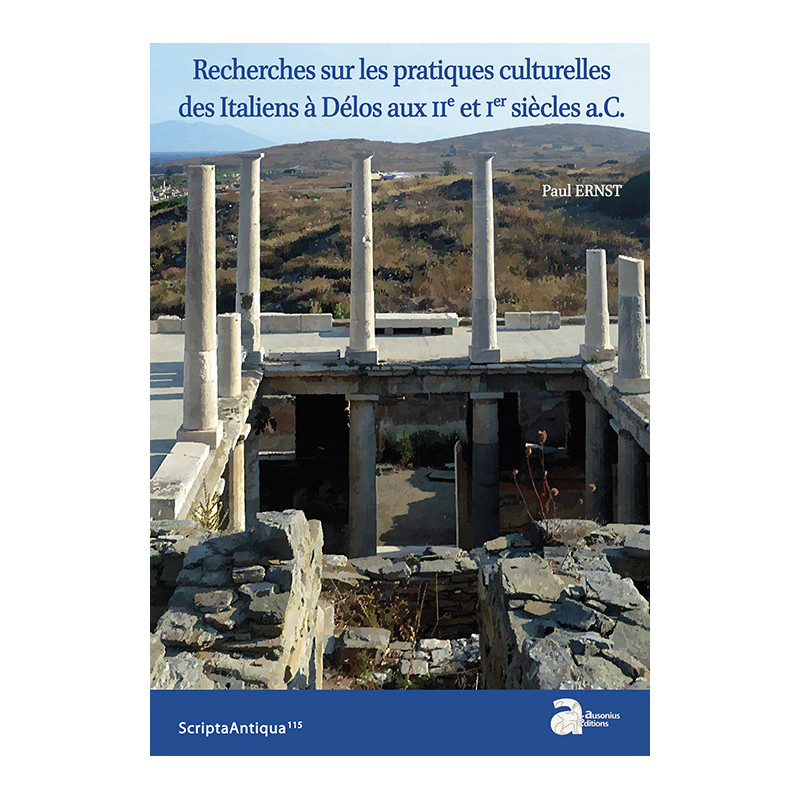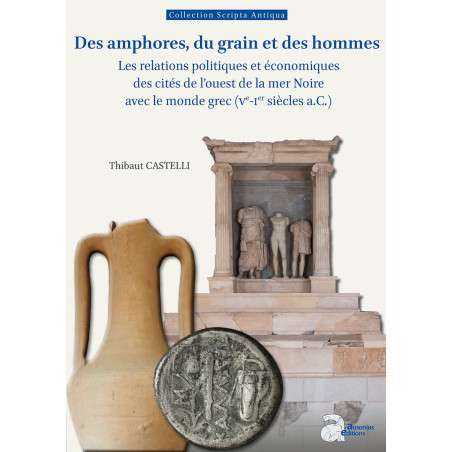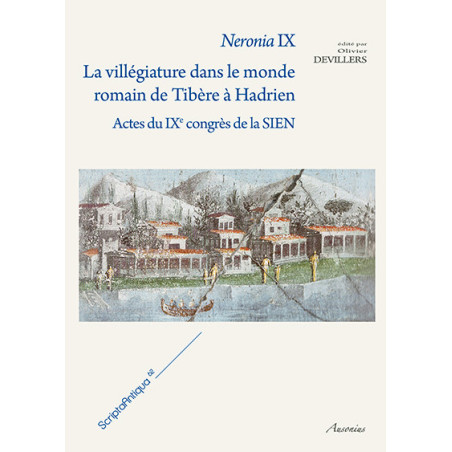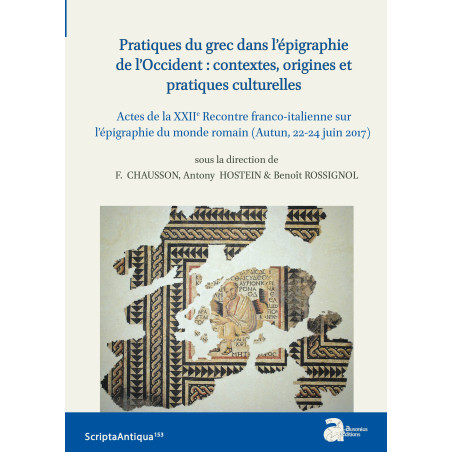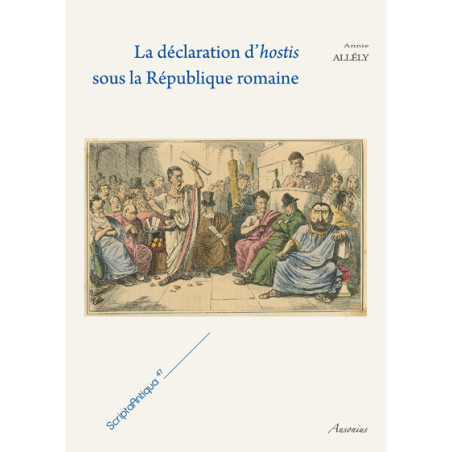Scripta Antiqua 115
Recherches sur les pratiques culturelles des Italiens à Délos aux IIe et Ier siècles a.C.
The 2nd and 1st centuries BC were marked by Roman interventions and conquests in the Aegean Greece, and by the decision of the Roman Senate, in 167, to place Delos under the control of Athens and to make it a port exempt from custom taxes. As a result, individuals who came from the Italian peninsula were more and more numerous to settle or reside temporarily on the island which became highly cosmopolitan and played the part of an economic bridge between Italy and the eastern Mediterranean.
Based on a wide range of varied documents which are mainly epigraphic and archaeological, the study deals with three themes: the places of residence and the domestic daily life of Italians, their family circle and their clients, their participation in the gymnasium activities and in competitions organised on the island, and their religious practices. This book tries to interpret the causes, the nature and the significance of each of these practices. It also analyses their social, economic and/or political dimensions in order to better understand the complexity of the advanced Hellenisation of those Italians who sometimes distinguished themselves by using Roman customs – or, at least, customs perceived as Roman – attested in Italy, particularly in Rome and Pompeii.
The study concludes with a larger perspective in order to determine what makes Delos both a representative example of the Italians’ cultural practices in the Aegean Greece, and a special case. Ultimately, the distinctive feature of cultural life in Delos seems to have been the wide range of integration patterns in which Italians fully took part, and, at the same time, the use of specific practices by some of them, at least in the last third of the 2nd and at the beginning of the 1st century. This phenomenon took place in the context of a balance of power that was favourable to Rome and to all those who identified with this city.
Prix Delepierre 2019
On the same subject
Scripta Antiqua 62
Neronia IX. La villégiature dans le monde romain de Tibère à Hadrien. Actes du IXe congrès de la SIEN
Publication date :01/05/2014
Scripta Antiqua 153
Pratiques du grec dans l’épigraphie de l’Occident
Contextes, origines et pratiques culturelles
Publication date :15/03/2022
Scripta Antiqua 47
La déclaration d'hostis sous la République romaine
Publication date :01/01/2012
